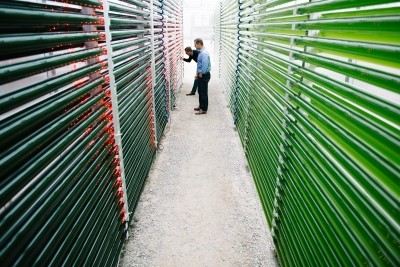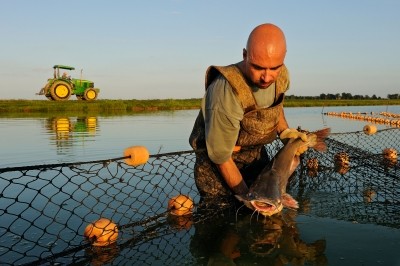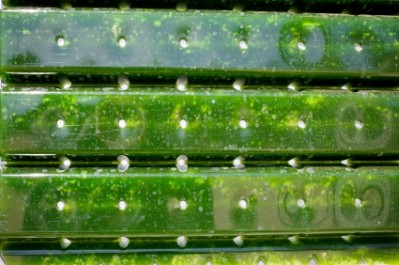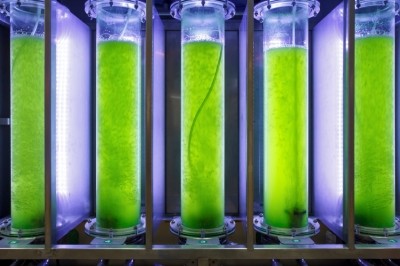Marine algae may inhibit bacterial growth in pigs
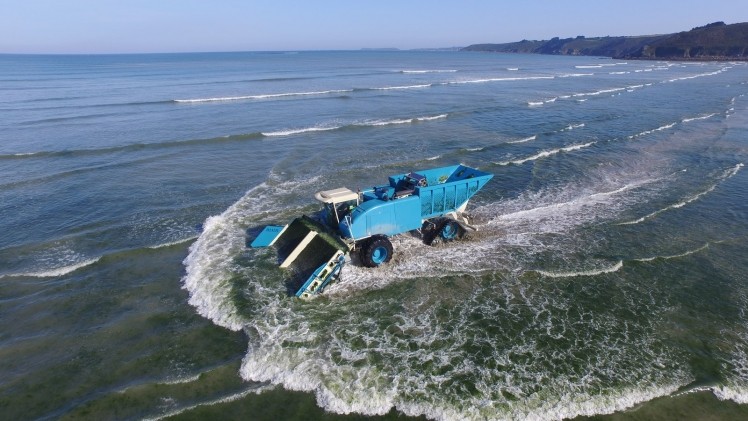
The findings, arising from a research partnership between France’s national agriculture research agency, INRA, and Brittany based algae additives producer, Olmix, have just been published in the Journal of Applied Phycology.
The results, according to the authors, showed the prepared extract from the green macroalga Ulva armoricana, marine sulphated polysaccharides (MSP), induced an increased production of cytokines in an in vitro system of differentiated porcine intestinal epithelial cells.
The study, which was funded by France’s Banque Publique d’Investissement (BPI), denotes the first detailed evaluation of the potential antimicrobial activities of marine algae harvested in Brittany, said the authors.
And the ability of the region’s macro algae to modulate the immune response has never been investigated until now, they added.
Marine algae are chlorophyll-containing aquatic plants that grow on the seabed.
They are classified in three groups depending on their pigments: brown algae (phaeophyceae), red algae (rhodophyceae) and green algae (chlorophyceae or ulvales).
They are said to represent a source of natural bioactive molecules as their cell walls are rich in sulfated polysaccharides that contain physicochemical and biological properties.
The authors said the MSP in question could be used in feed to improve farmed animal resistance to infectious diseases. Olmix called the findings “a major breakthrough in antibiotic free production research.”
Lead researcher, INRA’s Mustapha Berri, told FeedNavigator:
“This MSP was tested in vitro against a panel of 42 strains of pathogens isolated from infected farm animals. We showed that both gram-positive and gram-negative bacteria growths were affected. The most susceptible pathogens were Pasteurella multocida, Mannheimia haemolytica, Erysipelothrix rhusiopathiae, Staphylococcus aureus and Streptococcus suis while Salmonella and E. Coli were less affected.
In addition, we used an in vitro system of porcine intestinal epithelial cell line IPEC-1, and showed that the contact with this MSP induced the stimulation of immune response mediators.”
While his laboratory is currently working on pigs as a model for application of the feed additive, Berri said it could also be used in poultry.
Further analysis
The researchers need to carry out further investigations to confirm the results with in vivo testing, and to try and unlock the mode of action of the algae compound:
“Studies are being undertaken to understand the mechanism used by the MSP to stimulate the immune response by identifying the involved the cellular receptor recognized by MSP and the underlying signaling pathways,” said Berri.
In their study’s conclusion, the authors did, however, note the MSP extract evaluated was not fractionated, and the observed biological activities could be attributed to several compounds that needed to be purified.
“In fact, it is well documented that the biologically active compounds transferred from the biomass of algae to the liquid phase included polysaccharides, proteins, polyunsaturated fatty acids, polyamines, or minerals (Chonjnacka et al. 2012)."
Nevertheless, they said the chemical composition analysis indicated that the main component of the extract is ulvan, a sulfated polysaccharide showing structural similarity with glycosaminoglycan (sulfated polysaccharides composed with glucuronic and iduronic residues).
"molecular weight fractions of ulvan have already demonstrated biological activities in both in vitro and in vivo models (Leiro et al. 2007; Qi et al. 2011; Aguilar-Briseño et al. 2015). This component is regarded as the main candidate for activity, although further purification of the sample is needed for final confirmation," added the authors.
Source: Journal of Applied Phycology,
Published online ahead of print: DOI 10.1007/s10811-016-0822-7
Title: Marine sulfated polysaccharides extract of Ulva armoricana green algae exhibits an antimicrobial activity and stimulates cytokine expression by intestinal epithelial cells.
Authors: M Berri, C Slugocki, M Olivier, E Helloin, I Jacques, H Salmon, H Demais, M Le Goff, P Nyvall Collen.
